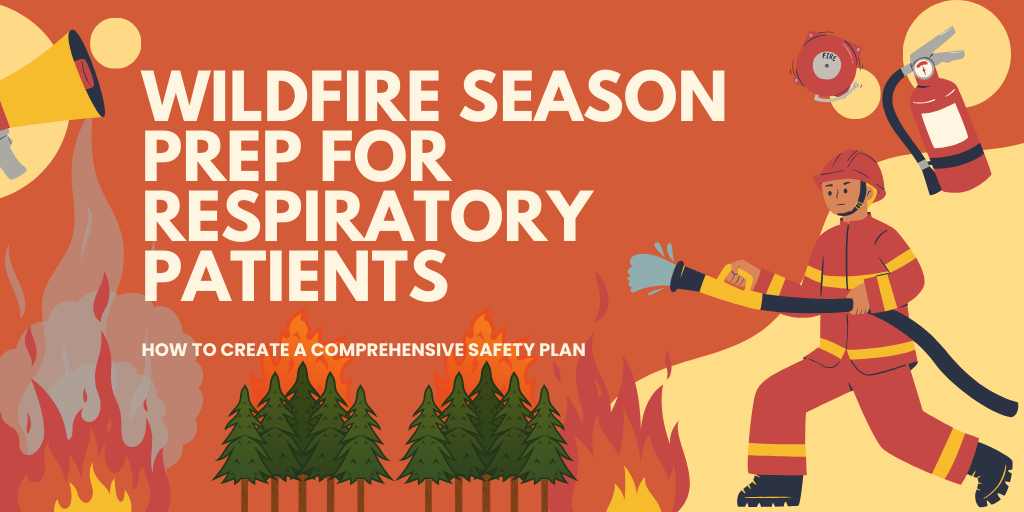
Sleep apnea is a common sleep disorder that causes people to experience interruptions in breathing during sleep.
Because it affects so many people, it’s natural to wonder if genetics play a big role in its development.
Researchers have been digging into the hereditary side of sleep apnea, and this has led to some fascinating discoveries about how our genes might influence this condition.
Genetic Links to Sleep Apnea
Several studies have looked into the possibility that sleep apnea might run in families, showing that having a family history could raise the chances of developing this condition.
One notable discovery is that people with close relatives who have obstructive sleep apnea (OSA) may find themselves at a greater risk as well.
This indicates that our genetics could have an important influence on the development and intensity of sleep apnea.
Identifying Specific Genes
Scientists have identified a few genes that play a role in sleep apnea, especially those related to the airway’s structure and how we breathe while snoozing.
Some of these genes are involved in craniofacial anatomy, like those that help shape the jaw.
It's interesting to note that differences in these genes can result in physical characteristics that might make someone more likely to experience airway blockages while they sleep.
The Role of Body Composition
Body weight plays a key role in sleep apnea, and if you have a genetic predisposition to obesity, it might be a contributing factor for you.
Some genes influence how our bodies burn calories and store fat, which can lead to being overweight or obese.
This, in turn, can heighten the risk of developing sleep apnea.
Research shows that people who inherit a tendency towards higher body mass indexes (BMIs) are more likely to face sleep-related breathing issues.
The Importance of Early Diagnosis and Lifestyle Intervention
Understanding the genetic aspects of sleep apnea can really help with catching the condition early and finding the right treatment.
If you have a family history of sleep apnea, it's a good idea to keep an eye on your sleep patterns and chat with a healthcare professional if you notice any symptoms.
Being aware of both genetic and environmental risk factors can lead to early intervention, which might help prevent the condition from becoming more serious.
Getting diagnosed early not only helps with managing symptoms but can also boost your overall health and well-being.
Monitoring Symptoms
Keeping an eye out for the signs of sleep apnea is super important!
Some common symptoms to watch for are loud snoring, moments when breathing stops during sleep, gasping or choking sounds during the night, feeling unusually sleepy during the day, and having trouble focusing.
If you know that sleep apnea runs in your family, it’s a good idea to be mindful of these symptoms and talk to a healthcare professional if you notice anything off.
Your health is worth it!
The Role of Genetics in Sleep Apnea
Numerous studies suggest that genetics can indeed influence the likelihood of developing sleep apnea.
While the exact genetic mechanisms remain complex and are not fully understood, several factors contribute to its heritability:
Family History:
Individuals with a family history of sleep apnea are at a greater risk of developing the condition themselves. This familial trend indicates that genetic susceptibilities may be passed down through generations.
Genetic Variants:
Certain genetic variants have been identified that may be associated with sleep apnea. Research has pointed to specific genes related to respiratory function, obesity, and craniofacial structure—all of which can impact the risk of obstructive sleep apnea.
Obesity:
Obesity is one of the most significant risk factors for sleep apnea, and it has a strong genetic predisposition. Studies have shown that genetic influences on body weight can indirectly contribute to sleep apnea risk, as excess weight can lead to airway obstruction during sleep.
Anatomical Features:
Genetic factors can also determine anatomical features that increase the likelihood of obstructive sleep apnea, such as a thicker neck, enlarged tonsils, or specific jaw and throat structures. These anatomical predispositions can obstruct the airway, leading to breathing difficulties.
Environmental Influences and Interactions
While genetics plays a role, it is essential to recognize that environmental factors and lifestyle choices also heavily influence the development of sleep apnea.
Conditions such as obesity, smoking, and alcohol consumption can exacerbate genetic risks. For example, even if one is genetically predisposed to sleep apnea, maintaining a healthy weight and avoiding smoking may significantly reduce the likelihood of developing the disorder.
Researchers are exploring gene-environment interactions further, seeking to understand how genetic factors may influence the body’s responses to environmental influences, potentially shaping the risk and severity of sleep apnea.
The Role of Lifestyle and Behavioral Factors
Making smart lifestyle choices plays a big role in both the development and management of sleep apnea, especially for those who might have a family history of it.
The good news is, by making some thoughtful changes, you can help offset any genetic risks.
Here are a few important factors to consider:
Regular Physical Activity:
Getting into a routine of regular exercise is a fantastic way to boost your overall health!
It helps improve your heart and lung function, which is great news for everyone. If you have a family history of sleep apnea, staying active can be especially beneficial.
It can help manage your weight and even strengthen the throat muscles, keeping your airway clear while you snooze.
Consider mixing in some fun aerobic activities, strength training, and flexibility exercises for a well-rounded approach to health that can really enhance your sleep quality!
Avoiding Alcohol and Sedatives:
Hey there! Just a heads up: alcohol and some sedatives can really ramp up sleep apnea symptoms by relaxing your throat muscles, which can make airway blockage more likely.
If sleep apnea runs in your family, it’s a great idea to cut back or even skip these substances altogether.
By keeping your alcohol intake in check, especially as bedtime approaches, you can greatly decrease the chances of airway obstruction.
Not only will this help with managing sleep apnea symptoms, but it can also lead to a much better night’s sleep and improved health all around!
Sleep Positioning:
Did you know that the way you sleep can make a big difference in how sleep apnea affects you? If you have a family history of sleep apnea, you might find it super helpful to sleep on your side rather than your back.
When folks with sleep apnea snooze on their backs, gravity can sometimes pull the tongue and throat tissues into the airway, which can cause those pesky breathing interruptions.
But don’t worry! Sleeping on your side can really help reduce this risk, keeping your airway clear and allowing for smoother, easier breathing throughout the night.
So, give side sleeping a try—it might just do wonders for your sleep quality!
Establishing a Sleep Routine:
Establishing a consistent sleep schedule can be a game-changer for boosting your sleep quality!
By going to bed and waking up at the same time every day, you help your body’s internal clock keep in sync, making it much simpler to drift off and wake up feeling bright-eyed and bushy-tailed.
Plus, having a regular sleep routine can support healthier sleep patterns, which is especially important for anyone with a family history of sleep disorders.
Reducing Nasal Congestion:
When you're dealing with sleep apnea, nasal congestion can make things a bit tougher by making it trickier to breathe through your nose while you snooze.
If you have a family history of sleep apnea, it’s a great idea to explore some simple ways to keep your nasal passages nice and clear.
Here are a few strategies you might find helpful:
- Using a Humidifier: Dry air can really irritate your nasal passages and make congestion even worse! A humidifier is a fantastic way to keep the air nice and moist, which can help you breathe more comfortably and maybe even reduce those pesky apnea episodes.
- Saline Nasal Sprays: Saline sprays can be a great way to help clear out those pesky allergens and mucus that can block your airways. Incorporating them into your nightly routine can really boost airflow through your nasal passages, making it much easier to breathe peacefully while you sleep.
- Allergy Management: If allergies are making your nasal congestion worse, there are some simple and effective ways to tackle them! You might want to consider taking prescribed antihistamines, steering clear of allergens, and sprucing up your sleeping space to keep it nice and tidy. These little changes can make a big difference!
Weight Management:
Carrying extra weight can be a major factor when it comes to sleep apnea, and while our genes might have some influence on weight gain, keeping a healthy weight can really help reduce this risk.
Sometimes, genetics can cause a bit of extra fat to build up around the neck, which may narrow the airway and lead to more sleep apnea episodes.
But don’t worry! Here are some friendly tips for managing your weight effectively:
- Balanced Diet: Switching to a balanced diet filled with whole foods can really help you manage your weight! Focusing on yummy fruits, colorful vegetables, wholesome grains, lean proteins, and healthy fats not only boosts your overall health but also helps keep your weight in check. Keeping an eye on your caloric intake is a good idea, too, as it should match your activity levels for successful weight loss or maintenance.
- Regular Physical Activity: Getting active regularly is super important for burning off those extra calories and building some muscle, which can give your metabolism a nice boost! It’s a great idea to aim for around 150 minutes of moderate-intensity aerobic exercise each week, and pairing that with strength training on non-consecutive days can work wonders too. Fun activities like walking, jogging, swimming, or cycling not only keep your heart happy but also play a big role in managing your weight. So, let’s get moving and enjoy the benefits!
- Portion Control: Keeping an eye on portion sizes can be a fun way to manage your caloric intake! By being aware of how much food is on your plate, you can better resist the urge for those tempting second servings. Plus, using smaller plates and serving utensils can naturally help you enjoy smaller portions, making it easier to stay on track with your weight goals!
- Sleep Hygiene: Getting a good night's sleep is super important for your overall health and can really help ease those sleep apnea symptoms! One of the best ways to improve your sleep is by sticking to a regular schedule—try to go to bed and wake up at the same time every day. This little habit can work wonders for your sleep patterns. Also, don’t forget to make your sleep space cozy! Soft bedding, a quiet atmosphere, and a comfy temperature can turn your room into the perfect sleep haven. Sweet dreams!
- Avoiding Alcohol and Sedatives: Hey there! It's good to know that both alcohol and sedatives can cause the throat muscles to relax a bit too much, which might make sleep apnea symptoms worse by blocking the airway. So, to keep things comfy while you snooze, it’s a smart idea to limit or steer clear of these drinks and meds, especially in the hours before bedtime. This little change can really help keep your airway steady through the night!
- Smoking Cessation: Did you know that smoking can play a role in sleep apnea? It can cause inflammation and make fluid build-up in the upper airways. The good news is that kicking the habit can really help boost your breathing health and ease those pesky sleep apnea symptoms! If you're thinking about quitting, don’t hesitate to reach out for some support. Options like counseling, nicotine replacement therapies, and smoking cessation programs can make the journey a whole lot easier. You’ve got this!
- Breathing Exercises and Therapies: You might want to check out techniques like yoga and breathing exercises, as they can really boost your lung capacity and help your airways function better. By making these practices a part of your routine, you can strengthen the muscles that support your breathing and enjoy improved airflow. Happy breathing!
- Mindful Eating Practices: Bringing mindfulness into your meals can be a wonderful way to keep those overeating habits in check, especially when emotions or surroundings come into play. Take your time to savor each bite, chew slowly, and try to reduce distractions like screens while you eat. This can really enhance your meal experience! Not only will it help with digestion, but it can also make you feel more satisfied and support healthier eating habits overall. Enjoy your mealtime more!
Conclusion
While genetics definitely play a key role in sleep apnea, they aren’t the only factor to consider.
The combination of our genetic make-up, lifestyle choices, and various environmental influences all work together to shape our risk for this condition.
By understanding these different elements, you can take proactive steps to manage your health and wellbeing, especially if there's a family history of sleep apnea.
If you're feeling worried about your own risk, chatting with a healthcare professional can provide you with personalized insights and help you explore potential ways to prevent or treat sleep apnea that fit your unique situation.







